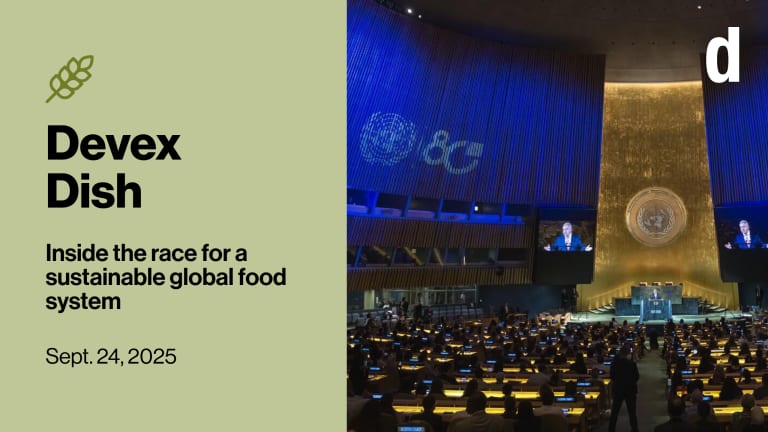
Name: Judith Schuler
Title: World Food Program public information officer for Ethiopia
Home: Switzerland
Currently in: Ethiopia; previously at WFP’s West Africa regional office and prior, in Niger
You’ve just visited drought victims and refugees in southern Ethiopia. What did you see?
I’ve been in the Dolo Ado refugee camp yesterday. Dolo Ado is at the border with Kenya and Somalia, all down south in Southern Ethiopia. Many refugees are arriving every day. However, I was there two weeks ago already, and I can say that the situation improved in the meantime. Two weeks ago, we had more than 2,000 refugees arriving every day. At the moment, this number is lower: We have between 400 and 700 people arriving. The people are well taken care of now when they arrive. However, many of them are in a state of severe malnutrition.
What was your first thought arriving on the scene?
The first time I was there, two weeks ago, I was really shocked because you saw so many people arriving. Children in particular are very malnourished. We now have data that up to 50 percent of the children below the age of five arriving are malnourished. It’s just really sad and desperate to see the condition of the people. All of them basically told me the same story: They came to Ethiopia; they sought refuge because they had nothing left to eat. They basically sold everything they had in order to be able to make the journey.
[Now] it is a little bit better because the aid agencies, together with the government of Ethiopia, really stepped up to respond. Now, when they arrive, all of them get a hot meal and the children below the age of five get high-energy biscuits, even before they are registered as refugees. Then, once they are in the transit center for refugees, they also get hot meals and as soon as they arrive in the camp, they get their food rations. I’ve really seen an improvement of the situation. They are now well taken care of. But the situation of those arriving is still desperate.
Lack of sleep, stress, heat, dust, crowds, worries about security and funding: What did you hear from aid workers on the ground about their situation?
They are working extremely hard, all of them, in order to take care of the arriving refugees. There is now a much bigger presence of U.N. agencies as well as international and local NGOs in order to cover all the different needs. However, they are working around the clock under very difficult conditions. It is hot, it is windy and dusty, and they are doing their best.
Read our full interview with Judith Schuller, including her response to criticism about the international community’s drought response and what the World Food Program is doing to improve crisis response.






